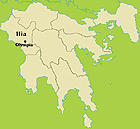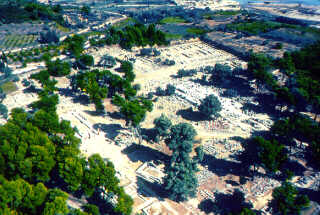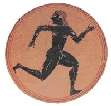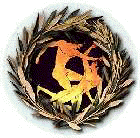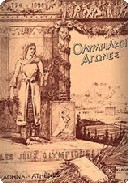|
Olympic
and Athletic Education |
|
|
|
|
|
|
|
|||||||||||||||||||||||||
| Therefore Olympia became a Pan-Hellenic centre. The ancient written sources report as year of beginning of the games the year 776 B.C. From that year the list of Olympic champions starts and is completed much later.The Pissates organised the games from 688 until the 572 B.C. In 570 B.C. Ilioi occupied the Pissa and controlled the organisation of the games. In the 5th century the games were in a great acme. During the Hellenistic era however, lost their initial character and they were transform to professional athletic events something that was consolidated during the Roman era. | |||||||||||||||||||||||||
|
|
The big historical events that
happened, during the centuries in Greece, influenced the athletic
ideal of the Olympic games, so thathappened
the gradual fall of moral values, something that was
worsened remarkably in 146 A.D., when the main Greece was yield by the
roman state and the Ilioi lost their independence. In the 2nd century
A.D., when the right of the Roman citizen was granted to all the
residents of the Roman Empire, the Olympic games became international.
Finally, they were abolished by Theodosius the first in 393 A.D.
(293rd Olympiad), when he decreed that all idolatrous sanctuaries
should be banned. |
||||||||||||||||||||||||
|
They combined the deep religious spirit with the heroic past
of Greeks, the highest degree of culture of body, mind and soul with
the universal philosophical values and the promotion of individual and
cities with the utmost ideal of freedom. Their super national character also survives in the contemporary Olympic games, that after interruption of 15 centuries they were organised in Athens in 1896, and they are taken place by then every four years. |
|||||||||||||||||||||||||
|
|
|||||||||||||||||||||||||
|
|
|
|
